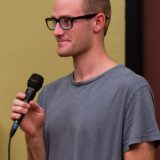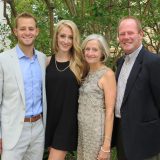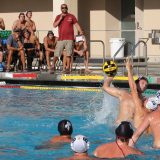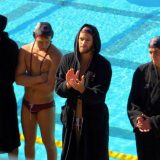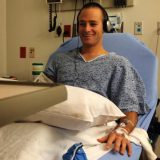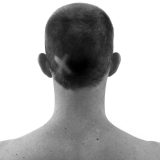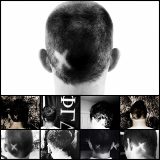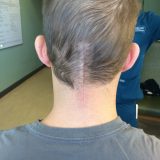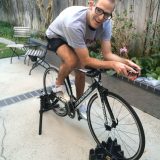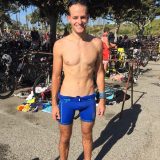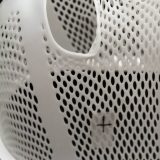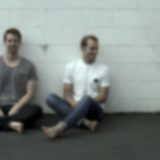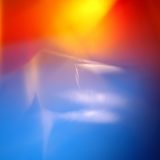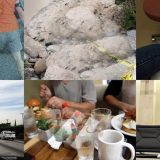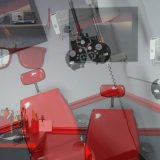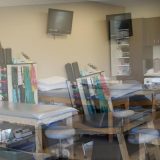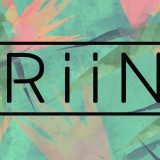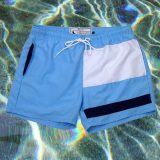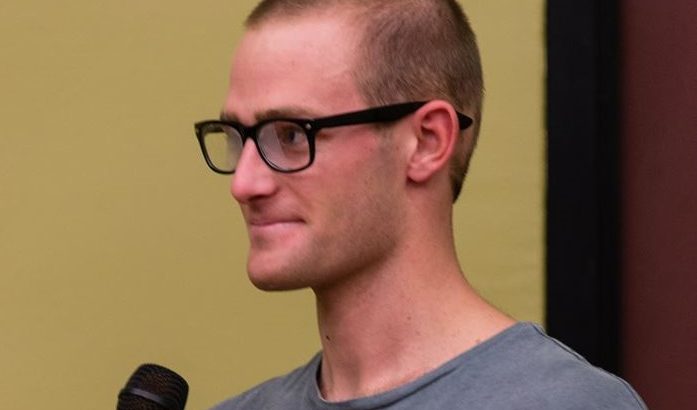
Business owner, graduate student and cancer survivor Dylan Trumbull ’14 shares his secrets to success
May 31, 2016
It was fall 2014 and Dylan Trumbull, who had graduated from Chapman University with a BFA in art that spring, was enjoying his internships at The Peggy Guggenheim Collection in Venice, Italy, and at Gagosian Gallery in London—until he started having severe headaches. A former Chapman men’s water polo player, he knew his headaches were different than what he experienced following his sports-related concussions in the past. When he returned to the States for an art gallery job, he had an MRI on Oct. 30 and received unexpected, life-changing news: he had ependymoma, a rare and malignant brain tumor on the left side of his brain in the fourth ventricle. He needed surgery immediately.
Dylan went into his Nov. 11, 2014 surgery with a warrior spirit; he knew the odds might not be on his side, but he chose to fight for his life. His life today proves he won the fight tenfold. He is pursuing his teaching credential and master’s degree at Chapman. Moreover, following his surgery, he joined Patient Experience, a collective of artists with illnesses who create art to raise awareness and break taboos around illness. The group has spoken at USC’s Keck School of Medicine and has held an exhibit of the individual artists’ work. Dylan also co-owns RiiN, a clothing company he recently launched.
Read on to learn more about Dylan’s fascinating story and don’t forget to check out the photos, which include his artwork, at the end of the article!
Melissa Hoon: What do you do on a day-to-day basis for your career?
Dylan Trumbull: My days are busy right now. I am balancing being a student in the master’s for teaching program at Chapman, just launched a clothing company (RiiN), regularly going to therapies and doctor appointments, along with doing physical exercise and other side projects, while still trying to be a 24-year-old kid. I like to keep busy and always have stuff going on, but many people warned me about balancing too much after brain surgery. The hardest thing for me, being someone who is high energy, is being told, “With recovery, think months and years, not days and weeks.” On a day-to-day basis, I change. Where I was the weeks after surgery is way different than how I am now. But it all has been going well so far and has shown that I can still handle balancing things. You can surprise yourself with what you can accomplish if you believe in it. Don’t always listen to what people say; it will just put a label on you and can limit your abilities.
In spring 2016, I started the M.A. teaching program, with an emphasis in secondary education at Chapman University. I spend two days a week at the Orange campus taking classes. One day a week, I attend vision therapy in Laguna Hills to strengthen my eyes because I still have diplopia (double vision). This is something that the doctors said would be the last thing to come back (after brain surgery), and it has already gotten much better. I also recently started RiiN with a good friend from high school.
MH: Tell me about the art you make to create awareness around certain illnesses.
DT: When I returned to California after my three-month stay in Arizona for my surgery and treatments, I was a new Dylan. I was fortunate enough to be connected to a group of artists, who call their group Patient Experience, battling illness and making art about their illnesses. They were investigating illness in a creative way. I was put in contact with this group by a former professor at Chapman who I still am in very good contact with, Micol Hebron. Patient Experience consists of several Chapman alumni. We have many meetings and we just gave a discussion at USC‘s Keck School of Medicine. I still do a lot of commercial and personal photography work. This collective has inspired me and kept me creative, and thinking about my illness and expressing it in a creative way.
MH: What have you learned from your experience with cancer?
DT: The experiences and things I have learned in this time are enormous. I still wanted to perform and complete tasks like I did before my surgery, but I have different strengths and weaknesses now. By using compensation strategies, I can go throughout my day and do things from surfing again, to my master’s program, triathlons, etc. I found different ways to be successful at these things. Another thing I have learned more of is empathy; I understand where I was and where I am today, and I relate that to everyone’s different situation—like dealing with my oldest brother, who has autism, or my grandma, who has Alzheimer’s. I have a new level of patience with people because I experience needing a lot of time sometimes to get thoughts out, or thoughts will be going on in my head that I just can’t get out verbally at a speed people would respect. I have learned how I was taken care of by my mom, dad and sister, and the sacrifices they made for me makes me look at helping others. And most of all, I’m grateful for the support that I received before and after from others—like my fraternity and water polo team at Chapman shaving the back of their heads to match mine. It tells a lot about the type of people who attend Chapman. The support was a big thing for me when I went into surgery knowing I could die or end up with extreme differences. The support gave me drive and still does to this day with everything I do.
MH: What insight would you give to current students and alumni who are searching for employment?
DT: Do something you love so you aren’t going into a job every day that you dread. Your passion should bring you to the right place.
MH: What advice do you have for current students who want to make the most out of their time at Chapman?
DT: You never know what tomorrow will bring, so live life to the fullest.
MH: From your time at Chapman, which faculty members made the greatest impact on you and why?
DT: There are few who are in different departments—Micol Hebron, the late Don Morris and Jennifer Shubin. Micol Hebron didn’t just educate me and help me inside the classroom, but outside as well. Don Morris was a great professor and to this day I find that there is a whole semester worth of information that I use. I used what I learned in Don Morris’s even just after brain surgery. Jennifer Shubin was my professor for two courses where I was given a perspective on helping and the self. Both Micol and Jen I still contact today, and both helped write my recommendation letters for grad school.
MH: How has your Chapman degree helped you in your professional and personal life?
DT: Chapman is a school that only gets better and better. I have noticed that when people have asked me where I graduated undergrad and I say Chapman University, they are very impressed right away.
MH: How were you involved on campus during your time as a Chapman student?
DT: During my time at Chapman, I tried to strive for a balance, referencing and always striving to Chapman’s four pillars (intellectual, physical, social and spiritual). For four years I was part of the men’s water polo team and a member of the fraternity FIJI.
MH: What is your favorite Chapman memory?
DT: The year that I got to spend in Pralle 110 with my freshman year roommate, Markus Silbiger. We still talk and meet up to this day, and are good friends.
MH: What was your favorite spot on campus as a student?
DT: The Zee Allred Aquatics Center was like my second home where I came together with a lot of my teammates who were like family to me.
MH: Have you been involved with Chapman since graduating?
DT: I had such an awesome experience as an undergrad at Chapman that I am back for graduate school, and taking advantage of as much as I can.
Explore and Connect Further:
-
Want to be featured in a blog like this, on social media or in Chapman Magazine? Share your news with us »
-
Want to catch up with alumni friends? Attend our next event »
-
Want to get involved with your alma mater? Volunteer with us or join an alumni group »
-
Who doesn’t like a good deal? Check out your alumni benefits and discounts »
-
Want to receive the monthly alumni e-newsletter and stay connected with Chapman? Make sure we have your current contact info »
- Dylan at a speaking engagement
- Dylan with his family
- Dylan playing on Chapman’s men’s water polo team
- Dylan and his Chapman men’s water polo teammates
- Post-surgery
- Post-surgery
- Post-surgery
- Post-surgery
- Post-surgery
- Exercising post-surgery
- Dylan Trumbull ’14
- Dylan’s artwork
- Dylan’s artwork
- Dylan’s artwork
- Dylan’s artwork
- Dylan’s artwork
- Dylan’s artwork
- Dylan’s artwork
- Dylan’s artwork
- Logo for Dylan’s clothing company
- RiiN trunks
- RiiN trunks
Want to connect with Dylan? You can via email, his website and social media accounts:
Personal website: www.dylantrumbull.com
RiiN website: www.riin.us
Instagram: @riin_apparel
